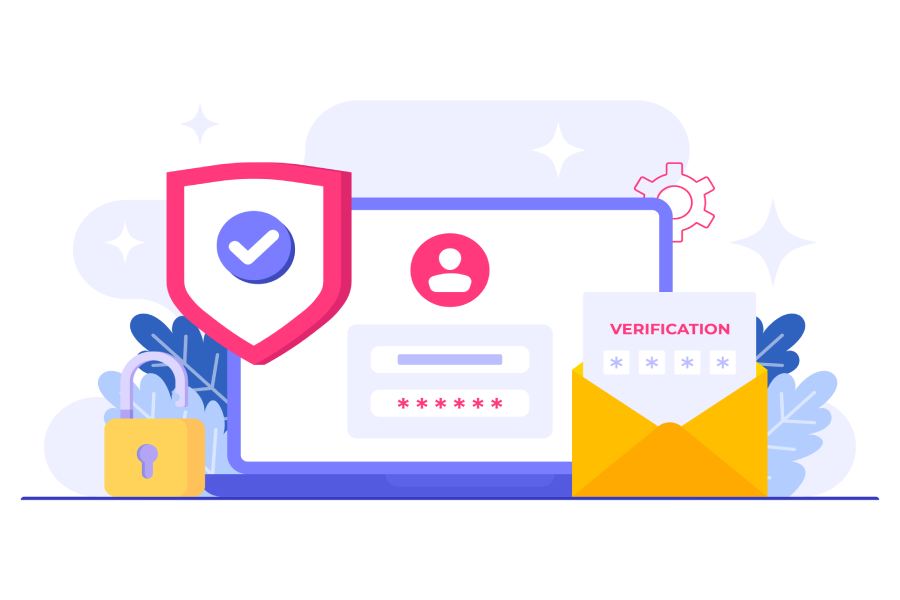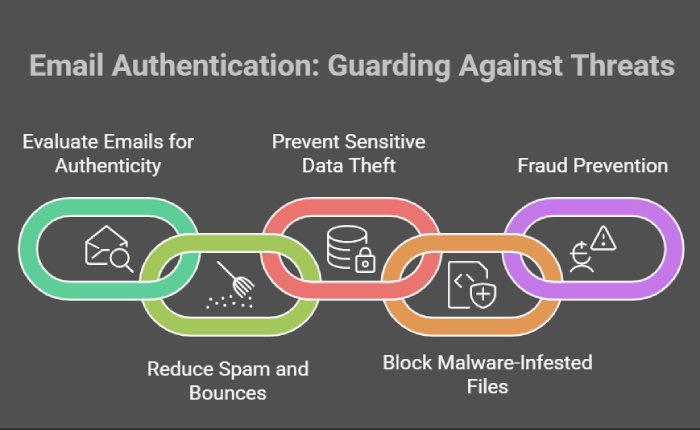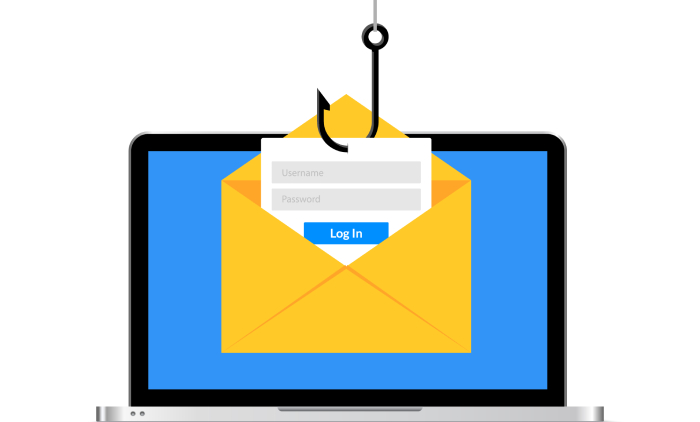Yahoo Japan has mandated DMARC and domain authentication
In November 2023, Yahoo announced that by February 1st, 2024, any company that sends more than 5,000 emails per day has to deploy DMARC to minimize the risk of email-based spoofing, phishing, and ransomware. After this announcement, the rate of DMARC adoption surged, and now Yahoo Japan has also made DMARC and domain authentication mandatory for users as of December 2024. Experts see this as a great opportunity to improve companies’ email security posture.
DMARC is a new-age email authentication protocol built on SPF and DKIM. It lets a domain owner instruct the receiving servers on how to deal with illegitimate emails sent from their domain. They can instruct to either mark such emails as spam or reject their entry altogether.
With this new requirement in effect, verified emails will feature unique brand icons and colors, boosting sender credibility and user trust. Businesses that abide by this will benefit from improved email deliverability, engagement, and brand reputation. The more genuine emails reach the right inboxes, the better your domain’s reputation with email service providers will be. When this trust is built, the instances of false positives also decrease.
To make this even more efficient, domain owners should use credible online SPF, DKIM, and DMARC lookup tools. These tools evaluate the correctness of your SPF, DKIM, and DMARC records and inform you of any errors.
Yahoo Japan has taken a new step towards email security
This new initiative by Yahoo Japan showcases its dedication to making emailing a reliable form of communication. Yahoo Japan aims to protect users from email-based cyber menaces that lead to a loss of millions of dollars annually.
To address not meeting these guidelines, Yahoo Japan says:
“To ensure safe and secure use of Yahoo! Mail, we recommend that email senders support sending domain authentication. Emails that do not implement or pass SPF, DKIM, or DMARC authentication may be judged as spam or rejected. (As of December 2024)”
Yahoo Japan’s new email authentication requirements
Yahoo Japan has introduced the following features with this new initiative-
Strict corrective actions
With SPF, DKIM, and DMARC, each of your outgoing emails is evaluated for authenticity. Emails that don’t pass the authentication checks are marked as spam or made to bounce back, minimizing the chances of targeted recipients getting duped by sharing sensitive information, downloading malware-infected files, transferring money, etc.
Brand icon and color functions
Verified senders’ emails will feature distinctive brand icons and colors, helping enhance visibility, boost credibility, and appear more trustworthy. People receive so many emails daily, and prompting them to open yours is a challenge. But with unique brand icons and colors, they are more likely to notice your messages and engage with them. It’s an effective way to stand out in a cluttered inbox and deliver your message.
Collaborative efforts
As a member of the Japan Anti-Abuse Working Group (JPAAWG), Yahoo Japan collaborates with organizations worldwide to strengthen anti-spam measures and improve email security. Through this partnership, they aim to combat email fraud, phishing, and other online threats more effectively.
Businesses should see this with positivity
Introducing any new technology to your business is surely an effort-taking task. To begin with, you have to understand what is to be done and find the right human resource to manage the task on your behalf. However, after the initial challenges and hesitations, the journey becomes smooth, and your fortification against email-based menaces strengthens. So, you should see this as more than just a mere compliance and deal with it accordingly.
Today, many domain owners have implemented DMARC for their domains but haven’t configured their DMARC records to benefit from its efficiency. We are talking about the DMARC records with the p=none policy. This policy is only for monitoring purposes and doesn’t take any action against unsolicited, phishing emails sent illegitimately from your domain. So, it’s better to gradually move from it to stricter policies, that are, p=quarantine and p=reject.
We understand that moving to stricter policies can be challenging. However, with proper monitoring, evaluation, strategy, and using the ‘percentage’ tag, you can gain confidence. We also understand that all this can be overwhelming and stressful for you. However, we at DuoCircle can help you with this. Want to know how? Contact us here.


